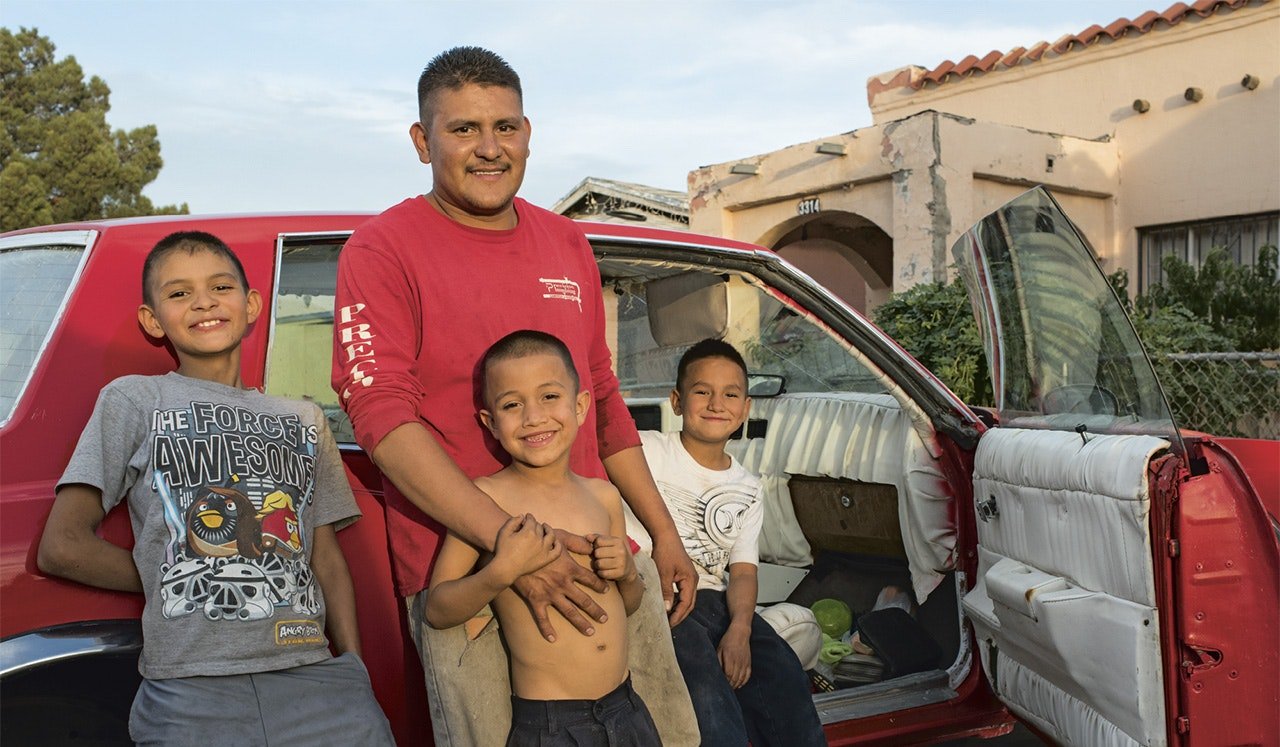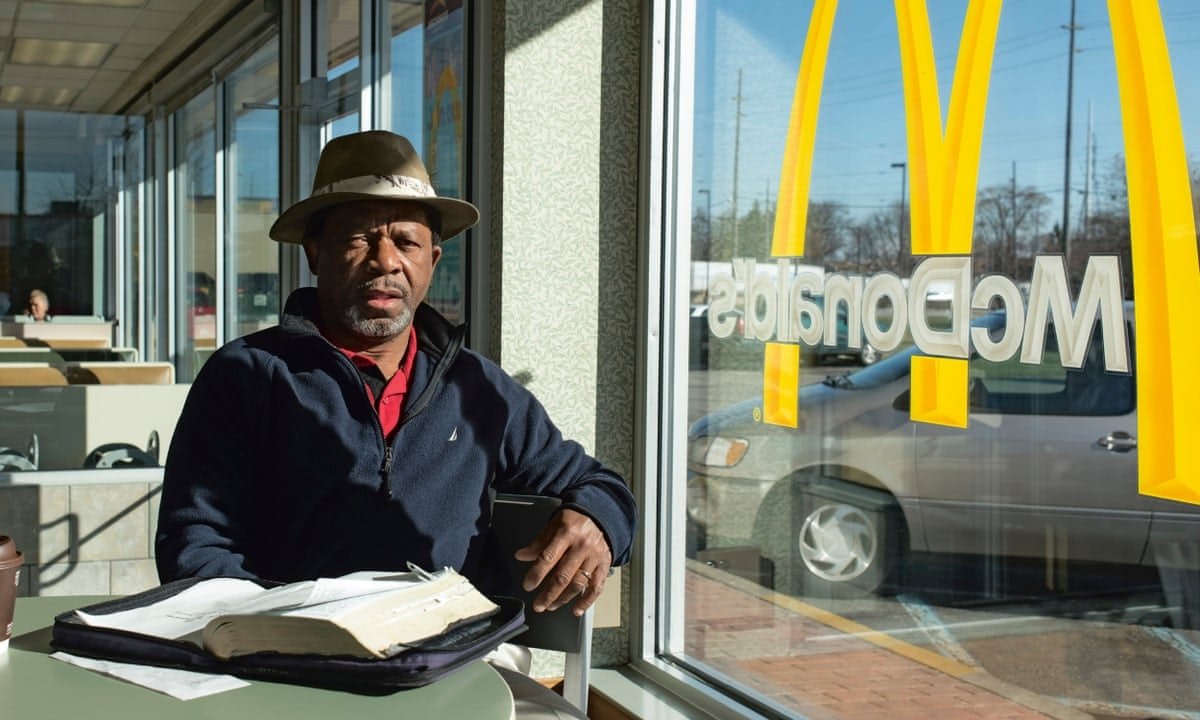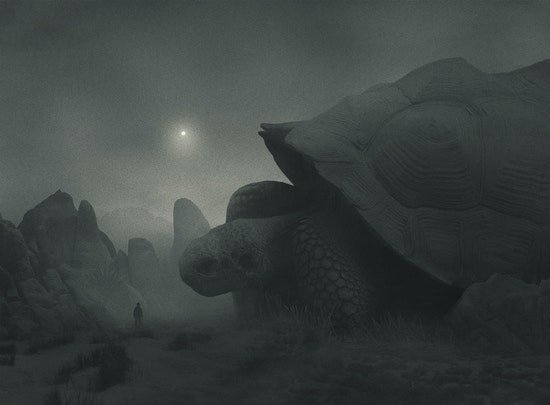Wisdom.
A week ago, I was one of a dozen speakers at a “Celebration of Life” event to mark the passing of a renowned and highly respected leader in the marketing, media and digital industries named John Durham. ( Had written a tribute to John on his passing ten weeks ago that had struck a chord : “Go the extra mile. It’s never crowded.” )
For the Celebration Event each of the speakers was given a specific brief to speak to one facet or time in John’s life. I was asked to speak about lessons he left for us leaders in the marketing, media, and digital industries.
Hundreds of people from students of John to CEO’s and pioneers of industry attended the event and I heard from many of them on how meaningful they found the talk and noted that John’s lessons were essential wisdom not just for the marketing and media industry but anybody in any business.
So today, I am sharing John’s wisdom with some significant variations and adaptions given the very different and wider audience and that this will be read rather than heard.
1. Be Distinctive
Companies, brands, and individuals which succeed are ones that differentiate themselves.
Stand for something.
Have a distinct point of view.
Provide a different perspective.
Craft a culture and a way of working.
Build a network and teams of diverse and the different and let them be them and free to speak out if you want to have a truly different product or service or grow your own skills.
John was so distinctive from his unique viewpoints (Durhamisms) down to his amazingly colorful socks that he became “The Durham”.
2. Be a source of enlightenment and inspiration.
All businesses can be tough. The marketing and media business can be tough.
It is very easy to get down and be negative given all the challenges that come with great velocity every day in a business filled with persnickety customers and clients that can be trigger happy in switching providers.
We can all be caught in a frenzy of urgency, twisting, and twitching with cyclonic vigor in attending to the matters at hand.
But never forget that people are looking to leaders to show the way forward.
Despite a topsy turvy career and significant health challenges, John always checked in on folks, had a story to make you feel better and inspired everyone from his students to all of us.
He shone a light on the way forward. And made us feel lighter under our burdens.
3. Fiercely defend ideas.
This is a business like all businesses that has gotten more data and spreadsheet driven as communications have become more digital and technology enables measurement at a granular level.
We all need to better understand and grow our data capabilities, but John reminded us that the key to marketing and media business are ideas.
We are in the businesses of change, culture, fashion, trends, insights, innovation, and human connections.
We need to be careful that in our idolizing the technology and data and spreadsheet we do not lose our way by following the wrong star home.
It is ideas and creativity that attract people to the marketing and media industries, and if they wanted to work in finance or technology or data they would join Goldman, Palantir, Snowflake or another company where those skills are what differentiates.
Ideas are the heartbeat of our business and the best of them tend to initially be so heart stopping in their difference with what has come before or so fragile that they need to be defended, protected, and nurtured so they can refresh the bloodstreams and future of our businesses.
4. Look over the horizon for what is next.
John was besotted with what lay ahead.
He switched careers and built practices around what would come. He moved from radio to magazines to media companies to agencies to tech companies to a bespoke consulting company working with start-ups.
He would invite me to his class at University of San Francisco where he prepared students for tomorrow and in the last class, we talked about the revolution in marketing that Web 3.0 might bring.
I would not be surprised to find that John might have owned some Bored Apes Yacht Club NFTs.
Tomorrow is where we spend the rest of our lives and even in the waning weeks of his life John looked over the horizon.
Whenever we are surprised as leaders or companies it’s because somebody made tomorrow tangible today first while we were solving yesterday’s problems.
5. Be passionate and care deeply.
John was dignified.
John was a cool cat.
But he was not cold, haughty, or chilled but rather warm, approachable, and vulnerable.
He was not a reticent, calculating, two steps ahead strategic plotter or someone who hedged his positions and blew with the wind.
He cared deeply and passionately.
He remembered in a silicon based, data driven and digital world to remain a carbon infused, feeling filled and analog human.
John cared passionately about his people, his companies, his work, and his points of view.
And of course, wine.
Very fine wine.
6. Renew. Refresh. Re-invent.
In a complicated world filled with hurly burly speed and messy things called people things often go wrong.
Snafus of communication and differences in expectations, incentives or approaches will lead to wires crossed and hurt feelings that can sever ties and relationships.
John always counseled to renew and restore and repair relationships even if it meant eating humble pie sometimes when you did not have to or want to.
He also noted that we constantly change as people, and we need to see each other from time to time with new eyes.
It is important to refresh and renew both your own relationships and those of your brand and company. Do not put people in a box and think you have them figured out. They change.
Finally, as someone who re-invented his skills to align with whatever new reality and opportunity, John reminded us that the real death occurs when we stop learning.
In illness and in good health John practiced a daily resurrection.
7. Combine roots and wings.
As we have heard there were at least two John’s. The John of the South which were the first half of his life which we know just a little of and then John of the West which we called “The Durham”.
While we may never have understood John’s roots and we often do not understand where people come from, their past beats like a second heart within them just like the roots and history of brand and companies have twisted them into their current shapes.
Every successful individual, brand, and company is fed by their roots, but they aspire to change, grow, and adapt and fly with wings.
Wings without roots often get blown away.
Roots without wings wither and die.
Fusing roots and wings is the way.
8. Protect and guide people.
In the end the most important thing John taught those willing to listen was that as leaders our first and foremost job was to protect and guide people since we scaled through our people. The best people could get into trouble, down cycles, or be upended in some ways and they must be protected.
The most talented would sometimes lose their way or come to a fork in the road and begin to question themselves, where they were and where they were going and needed guiding.
By protecting and guiding not only would we do the right thing, but it would be such behavior that would attract and retain talent for the long run.
Today hundreds of us from all over the country and all over the world are here because in the end John through his Durhamisms, his call just at the right time and his sharing of wine with wisdom has made all the difference to our lives.
And while he is gone if we practice what we learned from him he will still be beating in our bloodstreams.
Photographs by Rishad Tobaccowala.
Dignity
Photographs by Chris Arnade
Dignity is the right of a person to be valued and respected for their own sake, and to be treated ethically. It is of significance in morality, ethics, law and politics as an extension of the Enlightenment-era concepts of inherent, inalienable rights. The term may also be used to describe personal conduct, as in "behaving with dignity" (Wikipedia)
Marcel Proust wrote that it is “not to visit strange lands, but to possess other eyes that is the only true voyage”. A writer/photographer named Chris Arnade opens eyes we may not have seen with.
Chris has written a book which might be about an "other world" but is really about humans and our quest for identity, belonging and meaning.
Photographs by Chris Arnade
Chris Arnade received a PhD. From John Hopkins University in Physics and for 20 years worked at as a trader at Wall Street banks.
He left all of this behind and began a three-year journey across America driving 150,000 miles talking with and taking photographs of an America that is very real but few of us get to see or interact with. Millions of people who despite being stigmatized, ignored, or made fun of are fighting to maintain dignity.
Chris distilled his words and edited his photographs into a book: Dignity: Seeking Respect in Back Row America (The book was completed before Covid-19)
It is two books fused into one. One is a series of conversations with a spectrum of individuals across America who are forgotten, invisible and on the outskirts of our minds and another a spectrum of amazing photographs that bring these people to life.
Photographs by Chris Arnade
The subjects of the photograph seem to be saying:
Take our picture.
Tell our story.
We are here.
We matter.
The book is “about re-considering what is valuable, about honoring the aspects of life that cannot be measured, and about an attempt to listen and look with humility”
Regardless of what your beliefs are as you start this book you are likely to re-visit them by the time you finish it.
Photographs by Chris Arnade
The Importance of McDonald’s.
As Chris travels across America, he finds that in many places the center of the community of Back-Row America is the local McDonald’s. It is a place where people come to connect, to gossip, to celebrate, to meet before and after games, to read the Bible, to use the facilities and to stay warm.
An entire series of photographs are centered around McDonald’s.
Everyone seems to know how far the nearest McDonald’s is and in some instances Walmart. These two corporations which are often looked upon by skepticism by Front Row America are critical, essential, and deeply popular in much of the country.
Photographs by Chris Arnade
Everything is not under control.
The book tells and brings alive the story of people bearing the brunt of loss of jobs due to globalization. People dealing with childhood trauma and racism, and then being unable to progress due to the lack of credentials and the lack of mobility due to need to stay close to those they love, or they lack the resources to up and go.
The book is “about how you see yourself in the world, it’s about being physically strong when everyone now values being smart. It’s about caring about place and family when everyone values career. It’s about faith when everyone now values science or liking McDonald’s when everybody says it’s bad”
It is about how the self-perpetual cycle of rejection, isolation and drugs increasingly tear the fabric of community and the collateral damage of “optimizing by maximizing/minimizing versus doing the right thing”.
Losses are more than numbers on a spreadsheet.
Photographs by Chris Arnade
The Role of Religion in Belonging.
Some of Back Row America finds solace in drugs and many find it in religion.
As the author notes: “In religion they found someone that treated them as humans and even though they were judged for their past decisions they were accepted. You are welcome as long as you try.”
“The cold, secular world of the well intentioned is a distant and judgmental thing. That world has given them seemingly nothing but pain. Faith is a reality and source of hope. Science does not do much.”
Photographs by Chris Arnade
A World Apart.
At the end Chris Arande reminds Front Row America “that we have removed ourselves physically and in spirit from much of the country and when we look back, we do it through papers and books filled with data.”
He goes on to note that “we have implemented policies that focus narrowly on one value of meaning which is the material. We emphasize GDP and efficiency, those things that we can measure, leaving behind those that are harder to quantify-like community, happiness, friendship, pride, and integration.
And if economics and material goods are the primary form of valuation then education is the way out implying that those who do not make it are dumb, lazy, and stupid.” And education is harder to get , more expensive and the elite schools a luxury good that resemble “Hermes” bags.
He warns that “this has ensured that all those at the bottom, educationally and economically-black, white, gay, straight, men and women feel excluded, rejected and most of all humiliated”
We have denied many their dignity, leaving a vacuum easily filled by drugs, anger, and resentment.
Photographs by Chris Arnade
The Way Ahead.
The book does not believe the challenges can be solved by Government nor does it lay out any specific policies.
The author asks instead that everyone open their eyes and hearts and look around.
Seek to connect and understand different perspectives and people and be aware of what we may not see.
He ends by noting “We need everyone-those in the back row and those in the front row-to listen to one another and try to understand one another and understand what they value and be less judgmental”
Reading this book and looking at the pictures is one way to begin this journey.
The Perils of Wrong Questions
Illustration by Dawid Planeta
We have all heard how asking the right question is a key part of getting to the right answer.
But what if the real problem is that many of us are running our companies, teams, and careers by spending our time solving for the wrong questions?
Illustration by Dawid Planeta
How do we get people back in the office?
The fastest growing group on Reddit is “Anti-Work” which has grown ten-fold in the past year to 1.6 million “idlers”.
Half of the respondents say they still have full-time jobs.
Anti-Work is filled with stories that workers say prove that their bosses do not care about them like:
“Just a friendly reminder unfortunately we are all disposable and can get replaced in an instant”
“Even if you try your best and slave away hours it won’t pay off.”
“Boss makes a dollar; I make a dime. That’s why I f**k around on company time baby,”
But its most celebrated posts are screenshots of resignation letters and text messages. They proved so popular that moderators restricted their publication to Sundays.
“Idlers”, as members of the antiwork movement call themselves, largely believe that people should strive to work as little as possible and preferably for themselves.
“We maybe consider that there might be an alternative to living our lives in thrall to the wealthiest among us, serving their profit,” said historian Benjamin Hunnicutt, a University of Iowa professor whose books on the history of work are featured in r/antiwork’s library. “Maybe there are other things to do with our lives than piling up profits for those that are ultra-rich, and taking that time, reclaiming that time.”
While Anti-Work might be an extreme example, the “Great Resignation” among other things signal that we should not be asking “How do we get people back to the office?” but “How do we attract and retain talent by ensuring work regardless of where it is done enables growth, purpose and meaning?”
Illustration by Dawid Planeta
How do we benchmark against our competitors?
The greatest opportunities and threats to any company often come from outside its category and industry definition.
As Ford and GM and Toyota and BMW were benchmarking and gazing at each other’s belly buttons, true value and innovation and market capitalization were being created by Uber and Tesla.
Nokia and RIM/Blackberry and Sony who dominated mobile phones could not imagine a crazy computer company coming from outside their eco-system with a device that did not even have a physical keyboard.
Yes, indeed the iPhone was ridiculous when evaluated against existing benchmarks and definitions.
But we keep benchmarking against our existing competitors and by categories defined either by habit or industry and financial analysts.
In a time of great innovation and change being less pathetic or slightly better than other pathetic firms will not make us great.
Maybe we should be asking how we can create accessible solutions and experiences which people value and we can deliver with some combination of our current roots (existing assets and distribution/brands) and wings (new assets and innovation).
If the future does not fit in the containers of the past, why do we insist on looking at it with the mindsets of the past?
Illustration by Dawid Planeta
How do we satisfy our customer?
There is a problem with customer obsession in that we tend to see and frame people through the lens of our products and services and our brands.
Most people do not define themselves by their brands and smart companies like Procter and Gamble among other do not see the world only through the eyes of customers or their brands.
Because if they focussed on looking at the world only through the lens of their brands the only thing P&G would understand would be people’s dirt/smell removal habits.
Because P&G is basically a dirt/smell removal company if it defined itself only through use of its brands.
It removes dirt and smells from your butt (Charmin), your kids butt (Pampers), your teeth (Crest), your clothes (Tide), your body (Secret), your fabrics (Febreze).
Procter and Gamble is admired not just because of its amazing marketing and research but because it thinks about people and not just customers and consumers.
The question really is not how do we satisfy customers but how “How do we delight people?”
By focusing on people, it allows us to see things early and not be limited to existing definitions of our category and may be good for our existing customers better than just meeting their needs.
A story on why not obsessing on your existing customer and client needs may make sense.
In my previous career I got many things right and saw many things early like digital etc. but was slightly late at seeing the importance of something that was going to be huge.
Search engine marketing.
Why? Maybe because I was not paying attention and failed to see beyond my elbows when trying to look ahead.
But in hindsight, I console myself and explain my lack of acumen to being too Client focused.
Search Engine Marketing initially was great for people who were either not advertising or were very small advertisers using classifieds or local papers. In addition, there was no real price breaks or placement advantages for spending like in television or magazines.
None of my clients or their competitors were asking for Search and even if they did, they neither had the leverage of spending or knowledge to gain a competitive advantage.
So unlike broadband video, social, gaming, mobile and much more where we moved early here we were initially a step behind.
Oops.
The good news is that we figured out what was going on and we quickly made a big acquisition (Performics from Google when they bought DoubleClick.)
Learning: Clients and customers matter since they pay the bills but focus on behavior and needs of the people they serve and not just them.
Illustration by Dawid Planeta
How to minimize the chance of asking the wrong question.
Here are three ways you and your firm may minimize the risk of asking the wrong question.
1. Look at the question you are trying to ask and turn it around and see if it makes more sense.
Here is an example: Should you focus on how to get the cheapest arrows, or should you be asking how you can get the best archers?
Paying more for quality is always cheaper in the long run since it/they tend to work faster, think better, last longer and signal to your organization that you understand that buying cheap pigs maybe buying diseased pigs and could lead to poisoned hot dogs.
2. Run a fear free organization where people can voice their opinions and challenge the status quo.
Time and time again we find that the idea for the next big thing was born in the last big thing, but the management of the last big thing squashed the idea since it did not fit in the business model.
Or we find that the problem was clear for all to see but was looked away from since it would mean the person who called it out might lose their job.
The brown moist thing in the middle of the table is not always a brownie it could be a turd.
Here is how you can help your organization call out the “turd on the table”…
3. Look from “there to here” and not from “here to there”.
The questions you would ask would be different if you asked yourself what you would do if you started with a blank sheet of paper.
The only constraints companies cannot truly change are the laws of the country, laws of science and the need to break even at a particular point in time.
Everything else should be flexible.
When one starts with where one is versus where one wants to be, there are many constraints and rules that no start up or new competitor from outside the category would be limited by.
The Age of the Seasoned.
While society, politicians, and businesses of every kind (particularly marketing) are focused on what comes Next, on the New, On the Young, and On the Emerging, the biggest shift and impact on us all may not be what will come but those who have come before!
Yes, Millennial and Gen Z are critical because their habits and behaviors and expected longevity, but we may be entering “The Age of the Seasoned”!
There will be more seasoned people with 25% of the Europe and US population being over 65 by 2050.
They will control 70 to 75 percent of the wealth.
Companies will be desperate for workers with experience as workforces shrink.
The fight against Sexism and Racism may in time extend to Ageism.
Flexible work and new technology behaviors due to Covid will create massive new flexibility and opportunity for the seasoned.
By 2050, one in four persons living in Europe and Northern America could be aged 65 or over.
According to data from World Population Prospects: the 2019 Revision, by 2050, one in six people in the world will be over age 65 (16%), up from one in 11 in 2019 (9%). By 2050, one in four persons living in Europe and Northern America could be aged 65 or over. In 2018, for the first time in history, persons aged 65 or above outnumbered children under five years of age globally. The number of persons aged 80 years or over is projected to triple, from 143 million in 2019 to 426 million in 2050.
Older people tend to be more active politically and vote more often so they will have significant heft in democracies.
People over 55 now control nearly 3 of every 4 dollars and the share is growing.
Though the generational picture is stark, the difference in U.S. household wealth by age makes the picture of shifting wealth even clearer.
Until 2001, the shares of household wealth held by different age groups were relatively stable. People aged 40-54 and 55-69 held around 35% each of household wealth, retirees aged 70+ hovered around 20%, and younger people aged under 40 held around 10%.
Since that time, however, the shift in wealth to older generations is clear. The 70+ age group has seen their share of wealth increase to 26%, while the share held by ages 55-69 has grown from 35% to almost half.
But not all ages are seeing an increasing slice of wealth. The 40-54 age group saw its share drop sharply from 36% to 22% between 2001 and 2016 before starting to recover towards the end of the decade, while the youngest cohort now hover around just 5%.
Clearly within the older generations there is wide disparity in wealth with tens of millions not having enough to retire and others with enormous fortunes, but as a cohort the Seasoned is where the money is.
As populations begin to shrink and assuming anti-immigration fervor does not dissipate businesses will increasingly have to rely on older employees.
Population in most Western countries is shrinking fast and the recent Census revealed that the US population growth this past decade
The United Nations has said the number of people in the EU bloc will drop to 365 million by 2100, down from 446 million today.
But a new study, published in the medical journal The Lancet, predicts it will fall more sharply, to 308 million by the end of the century.
The year 2021 is the first time since 1937 that the U.S. population grew by fewer than one million people, featuring the lowest numeric growth since at least 1900, when the Census Bureau began annual population estimates.
Both for financial reasons of countries delaying pensions due to financial constraints and the desperate need for workers there is going to be a massive aging of the workforce.
Increasing Sensitivity and Awareness of the Other “Ism”: Ageism
Recently a research report titled “Workplace Equality for All! (Unless They’re Old)” conducted by professors at Stanford and New York University revealed that while there was less and less tolerance for any form of racism or sexism, ageism was still relatively widespread.
Their research revealed that more people tended to endorse this idea that there should be equality for everyone and striving to reduce prejudice toward traditionally discriminated groups, there was this surprising correlation. Those who were more egalitarian — who were striving to reduce prejudice toward traditionally discriminated groups — were less likely to endure racist views and less likely to endorse sexist views but weirdly, they were more likely to support ageist views, endorsing this idea of succession; that older adult should step aside and make way for younger generations
However, it is very likely that the advances against racism and sexism will likely also help against ageism because the concept of “fit” which might have held back women and people of color can also no longer be used to discriminate against older people. As the authors note:
“Think of how many hiring decisions, firing decisions, promotions, raises and opportunities are allocated based on so-called 'fit.' Man, the word 'fit' is so loaded when it comes to age, right? It's a code word.”
As a result, more and more companies are facing and losing age discrimination cases.
How Covid changed mindsets in ways that may benefit the Seasoned.
Millions of Americans have disappeared from the workforce, and many of those who have left are older. Their exit has many causes from positive ones such as appreciation of assets that allow them to leave to negative ones which are greater susceptibility to illness or in ability to get back easily to a job. This has left business scrambling for talent and more willing to increase pay, provide greater flexibility and better hours.
The two biggest shifts due to Covid which will benefit the more seasoned is that fact of distributed work (“remote” is not correct since being out of the office does not mean you are isolated and do not meet with people in other places) and how quickly older people began to leverage and adapt to technology putting a nail in the “they fear technology” nonsense.
Distributed work allows companies to buy a part of a seasoned person’s time making them affordable while giving them flexibility to go from full time to part time work and no longer a forced choice of work or no work. Technology especially with Web 3.0 will continue to enable and extend capabilities without knowing to code or be physically in great shape.
Finally, this supposed hunger for mentoring, guidance and learning the ropes that people are missing comes from whom? The Seasoned! And it can be done in person outside the office or even on Zoom!
Implications to Ponder.
Will generational divides be another axis of polarization?
Will the disparate wealth between the Seasoned and Gen X/Millennials be another driver of polarization or will the transfer of wealth via inheritance (though likely to increase inequality) ameliorate these possible fissures? The implications regarding the future of taxes, medical care, and social benefits are likely to be significant. Already young people are far more likely to be socialist as they wonder if they will ever do as well as the older generations with many ladders of advancement and wealth creation in short supply.
Is your firm getting ready for the Age of the Seasoned?
Every company should not just ask how they are getting ready for not just for the next frontiers of technology but the Tsunami of the Seasoned.
From introducing or adapting products to designing services it will be key to keep this key constituency in mind. HR and Talent management needs to ensure your workplace can take advantage and leverage their talent.
Are you planning your career keeping in mind the Age of the Seasoned?
Careers are likely to last five decades. In 12 Career Lessons a key learning is to think in long cycles and keep in mind that the reason the grass appears greener on the other side is that is often fertilized by bullshit.
As firms increasingly leverage distributed and unbundled work to find new ways to architect teams most people are going to work across generations and not just across time zones. What emotional and intellectual skills, what expertise and craft will you need to hone and grow and how will you re-invent yourself over your seasons in an increasingly plug and play world?
Photographs by Rishad Tobaccowala
Six Ways to Be and Feel Better
It is 2022 and all of us are coming off two challenging years.
We all hope and wish for better times and make new resolutions to improve and grow ourselves.
Here are six ways (none of them requiring a gym membership, going on diet or giving up anything_ that any person of any age anywhere in the world can do whenever they wish to now or in the future !
1. Accept the 3Ls of loss, love and learning.
When you live your life are there some underlying beliefs and truths that drive you or you measure yourself against? If we are to grow, where are we trying to go?
I have long believed that if there is a competition it is not with other people but to get better every day and to get closer to what you believe or your ideals.
Your success is not housed in other people’s minds (what they think of you) but in their hearts (what they feel about you) and in your mind (what you think of yourself).
In many ways Life is about Loss, Love and Learning (the 3 L’s)
Loss is central to the human experience in three ways. The first is we often lose in our attempts to succeed. We lose pitches, Clients, jobs, and opportunities. Many times, we win. Some people win little, and others win a lot. But we all lose. But these losses are not the big ones. The second bigger losses are the losses we will face of loved ones and friends either because relationships end, or death comes, and our final loss is that of our lives.
How we live amidst this loss defines a large part of life.
The joy we make is because time is precious, and this moment of victory may not last forever. Given that loss is part of human existence it pays to be kind and to think about how to help those in loss for do not ask for whom the bell tolls since it tolls for you.
A big part of what makes life worth living despite the guarantee of loss is the hope of love and joy of learning. Love of people, of work, of art, of culture. Love may not compute but computers do not love. There is a great deal of progress made over generations on who one can love, the ability to do things one loves and because of modern technology to be exposed to new worlds, horizons, and things to love.
And learning is particularly joyous. Learning in its first form is building knowledge. With great knowledge and practice we build skills and craftsmanship. Learning to see things from other perspectives gives us understanding. Sometimes if we are lucky, we can graduate from knowledge, skills and understanding to wisdom.
2. Be Open.
Today, like never, there is a pull towards being closed.
Our online media diets tend to be polarized as streams of algorithmic feeds optimized to engage, addict and make us feel good about ourselves may leave us believing that the stink of some of our more flatulent thoughts have the aroma of Chanel No.5
Many politicians want to build walls, exit multi-state treaties and organizations, demonize the other, look away from reality, facts, and truth.
Nationalism rises despite all the big challenges and opportunities are global in nature.
Let us start with the letter C.
Covid-19 is global. Climate Change is global. China’s impact is global.
Two new books (one looking back and one imagining forward) build the case for openness.
The Economist which reviewed Johan Norberg’s book says…
“Open” is clear, colorful, and convincing, marshaling evidence from a range of eras and civilizations. The Roman Empire ceased to prosper when it ceased to be open. Christianity became the established religion and sought to crush all others. “This new intolerance…led to vicious conflicts…between Christians and pagans, who saw their old gods being banned and their temples torn down.” Persecuted pagans joined Rome’s enemies, even welcoming barbarian invaders as liberators.
Human history, in Mr. Norberg’s telling, is a cacophony of drawbridges being lowered and then raised. Mathematics and medicine flourished under the cosmopolitan Abbasid caliphate but froze when religious conservatives won control. By driving out Jews, Muslims, and heretics, he argues, the Inquisition helped impoverish Spain (between 1500 and 1750 the Spanish economy actually shrank).
Matthew Yglesias imagines forward and builds the case that if the United States wishes to be a dominant power in the future when facing a billion strong China (about to become the world’s largest economy in five years) or a fast growing billion person India it should be far more open to immigrants and even with 600 million new people, we will be less dense than France or Germany are today.
As someone who grew up in India and has been to 22 cities in China I am not sure why their rise should be an issue because the world is not a zero sum game except for the small minded. Up to 200 years ago these were the world’s largest and most powerful economies but a combination of colonization, strange politics and most importantly a failure to innovate and keep up with Science and Technology set them back. But, if the US is to remain as amazing as it has been it needs to remember its roots are in immigrants, a love of science and technology and freedom of thought and innovation all connecting with each other and the world.
Be Open. To other ideas. To other perspectives. To other people. To other cultures.
3. Mind the gap.
Some time ago I attended an online talk from London by Alain de Botton of The School of Life. He talked about his new book “An Emotional Education”, noting that while many people teach skills and expertise very few people focus on how to live an emotional life. He decried much US self-help books that believe in the achieving perfection and having it all.
Today in the Instagram age so many of us try to be pixel perfect. But life is not pixel perfect.
In fact, most of life is “minding the gap”. The gap between who we are and what we want to be. The gap in communication between any two people. The gap between what we say/project externally and what we believe/live with internally.
The most contented people tend to be those who have narrowed this gap or being aware of it find ways to accept that life is incomplete, imperfect, often incomprehensible. They are authentic, trustworthy, happy within themselves not needing constant external validation and have strong relationships and connections with people. They are vulnerable, empathetic, and constantly growing (often making mistakes as they do).
There are others who project power, fame, and wealth but you begin to see that often many have the warmth of a toilet seat, all the external validation they have or seek does not fill the chasm of emptiness that echoes with hollowness and this truth burns and eats their inside even as they smile and blow kisses on the outside.
So, what to do?
George Saunders the Author said “Err in the direction of kindness”
Today in the world we have much rage.
So, best be kind.
Kind to others and to yourself.
This is one way in helping mind the gap.
4. Compound Improvement.
The single most powerful concept in Finance is that of compounding.
Compounding interest and compounding returns can over time create wealth or lead one to bankruptcy depending on whether you owe or own capital.
If you start with 12,000 dollars and add 1,000 dollars a month every month for 30 years and it grows at 10 percent, you have just under 2.5 million dollars. The key is you set aside a small sum every month for a long time.
In a world of change we all may want to consider another way compounding can help us grow in changing times and drive mental, emotional, and even financial wealth which is compounding improvement.
If a company can only change and transform if its people change and transform, we should each invest in upgrading our own mental and emotional operating systems.
There is so much we cannot control in a world driven by global, demographic, social and technological change but instead of being buffeted about helplessly in a sea of chaos maybe we can try to control and build our ourselves to be better.
Three ways on how you might start this very minute begin to embrace Compounding Improvement
a) Discipline equals Freedom: This is the title of a book by Jocko Willink, a Navy Seal. Basically, if you want to get a grip on the world get a grip on yourself.
b) Invest an hour every day in learning: The world is changing so fast that many of your skills and expertise and mindsets need continuous upgrading. While many of us set aside time to exercise to maintain our physical operating system we need to also feed and exercise our minds. The power of this habit is that at the end of a year you will have spent 365 hours learning new things by just doing one hour a day. You will gain compound returns to thought!
c) Deliberate Practice: Professor Anders Ericcson who passed away last year wrote a book called “Peak” which is the best study of deliberate practice. Deliberate practice involves three components 1)immediate feedback, 2)clear goals and 3)focus on technique. According to his research, the lack of deliberate practice explained why so many people reach only basic proficiency at something, whether it be a sport, pastime, or profession, without ever attaining elite status.
5. Improvise like Jazz.
We are living in a jazz age and not a classical one.
In classical music —particularly orchestral music—there is a conductor that musicians follow, sheet music one sticks too and a hushed auditorium one sits in.
Jazz on the other hand is a mix of classical, swing, blues and much more but at its heart it’s about improvisation. It is about playing off each other. There is no conductor. Rare is there a hushed auditorium but more likely a noisy club or the anguish of a lonely saxophone in a subway station.
Today we are living in a diverse, global, and connected world where we have to work together, we have to fuse our different cultures and beliefs and constantly adapt and improvise
6. Read Poetry.
I have over 80 books or shelf and a half of Poetry books at home each of which I have significant parts over the past decades.
Why?
Here are how some Poets have explained the importance of poetry (I have picked different lines from different poets) …
Perhaps you have been banged about by recent events. It can help to say words, walking helps. Poems help.
The meaning of poetry is to give courage.
Poems restore to us what is deepest in ourselves. It consoles us.
Greatest poetry is written at the borders of what can be said. It makes a strong effort at expressing the unsayable.
Poems are perfect words in perfect order.
They help us see and feel as these lines which I have extracted from different poems by James Wright’s book “The Branch will not Break” which all describe dusk in a Midwest prairie farm. Each line is filled with a new way of seeing and whenever I am driving in the evenings outside of Chicago, I sense things differently because of these lines. The sensing and seeing also helps me in my writing, my photography and in paying attention…
Noticing matters.
Silos creep away toward the West
The cow bells follow one another into the distances of the afternoon
The sun floats down, a small golden lemon dissolves in the water
The moon suddenly stands up in the darkness
The moon drops one or two feathers into the field. The dark wheat listens.
And poems remind us of the passing of time…
Time is an echo of an axe within a wood
The sunlight in the garden hardens and grows cold, we cannot cage the minute within its net of Gold
But one day I know it will be otherwise…









































